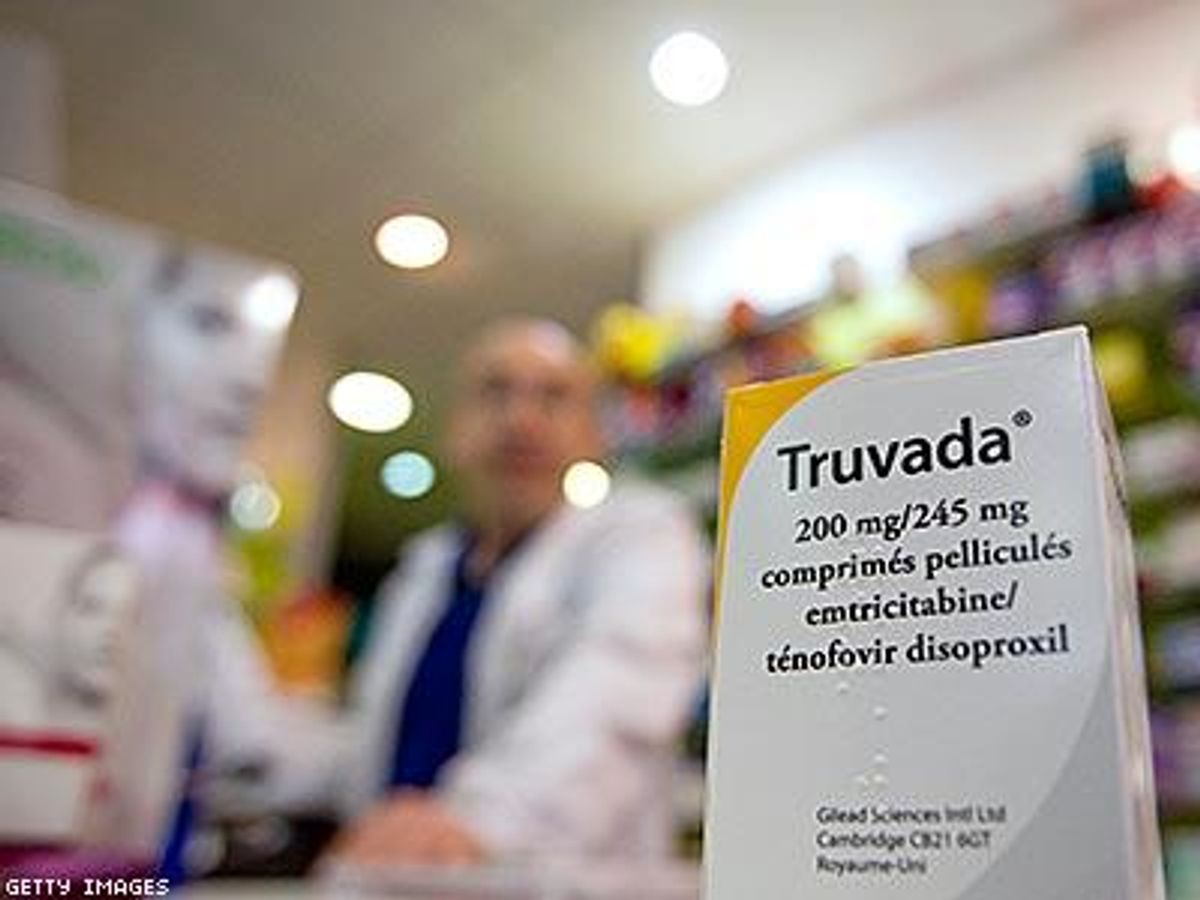A recent study reports that those with a high risk of contracting HIV — including gay and bisexual men and transgender women — will adhere to a daily PrEP regimen to prevent HIV, shutting down critics who've said pre-exposure prophylaxis won't work because of adherance issues.
Funded by the National Institutes of Health, the study indicates that populations at substantial risk of HIV will adhere to the effective HIV prevention medication Truvada, which is a combination of two antiretrovirals (tenofovir and emtricitabine) in a single pill.
The study looked at adherence among transgender women and gay and bisexual men in New York and Thailand as well as young, single black women in South Africa (read more about the South African women in the study here). All of these groups successfully adhered to daily dosing of the pre-exposure prophylaxis.
Some previous placebo-controlled PrEP clinical trials had found challenges with adherence, but in this HIV Prevention Trials Network study, 76 percent of women prescribed PrEP adhered to the daily regimen. Trans women and men who have sex with men from Harlem and Bangkok showed adherence rates of ad even higher 65 percent and 85 percent respectively.
According to NIH, "Participants at the Harlem site were predominantly black MSM, and average adherence was 65 percent when daily PrEP was prescribed." Meanwhile, "MSM and [transgender women] in Bangkok had the highest success with daily dosing with 85 percent taking the pills as instructed."
Researchers in the HPTN 067 trials (also known as the Alternative Dosing to Augment Pre-Exposure Prophylaxis Pill Taking or ADAPT study), presented their findings at the 8th International AIDS Society Conference on HIV Pathogenesis, Treatment and Prevention in Vancouver, Canada.
“These are encouraging findings,” said Anthony S. Fauci, M.D., director of the National Institute of Allergy and Infectious Diseases at NIH. “Demonstrating that if given access to Truvada, women and men will take it daily to prevent HIV infection.”
The Phase II clinical study, HPTN 067, began in 2013 and was designed to identify the PrEP pill-taking schedules most likely to be followed by those at high risk of contracting HIV. The study enrolled 179 black gay and bisexual men and transgender women (median age 30) in Harlem, New York; 178 Thai MSM and transgender women (median age 31) in Bangkok; and 179 women (median age of 26) in Cape Town, South Africa.
Participants were each prescribed Truvada, but randomly instructed and counseled to either take the pill once a day, one pill twice a week and after sex, or one pill before and after sex. Adherence rates were measured by techniques that included self-reporting, blood and hair analyses, and data from Wisepill devices, which record opening of pill cases.
Not surprisingly, the group with the highest adherence were the patients prescribed a one-pill-a-day regimen. Adherence was significantly lower among those taking the non-daily PrEP regimens, with fewer than half of the participants sticking to the dosing schedule.
(Daily use of PrEP is the only regimen approved by the U.S. Food and Drug Administration and recommended by the U.S. Centers for Disease Control and Prevention. It remains unclear whether nondaily regimens are effective in preventing HIV.)
Those enrolled in this open-label study were educated about the efficacy of daily PrEP and knew they were taking active drugs rather than a placebo. All participants were provided with HIV risk reduction counseling and offered condoms. Study participants who became HIV-positive during the 24 week course of the study were connected to care.
“This is an important step forward for optimizing HIV prevention strategies for people who would otherwise be at high risk for acquiring HIV infection,” said the study’s lead author, Robert M. Grant, M.D., M.P.H., of the Gladstone Institutes and the University of California, San Francisco.
Focus groups of enrolled participants also showed that community support and reminders delivered via cell phones aided adherence.
Participants at the Harlem site were predominantly black men who have sex with men; their average adherence was 65 percent when daily PrEP was prescribed. MSM and transgender women in Bangkok had the highest success with daily dosing with 85 percent taking the pills as instructed, while 79 percent took the twice-weekly pills combined with one pill after sex, and 65 percent took the schedule that involved one pill before and after sex.
These clinical trials “showed that daily dosing was the easiest PrEP regimen to follow,” reiterated Jonathan Mermin, M.D., director of the National Center for HIV/AIDS, Viral Hepatitis, STD, and Tuberculosis Prevention at CDC. “This is important and encouraging news, since we know that PrEP offers high levels of protection against HIV when taken daily.”
More information about the HPTN 067 can be found on ClinicalTrials.gov (under the study identifier NCT01327651).
Correction: an earlier version of this article erroneously stated that trans women in Harlem and Bangkok had the highest rates of adherence (85%). Actually those numbers were for the participants (both MSM and transgender women) from Bangkok.
















































































